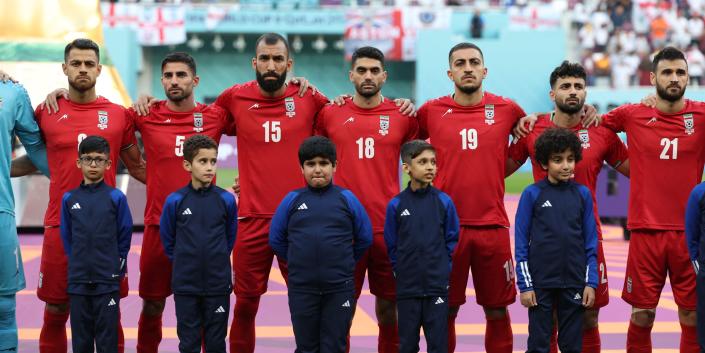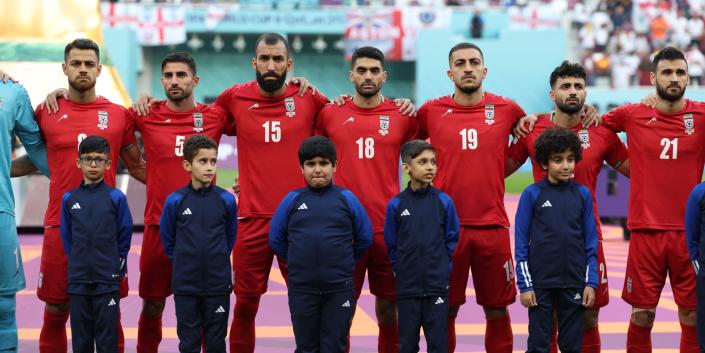
-
Iran’s World Cup team did not sing their country’s anthem, in apparent solidarity with protesters.
-
They were then told their families would met with “violence and torture” if they didn’t sing, a source told CNN.
-
In recent months protests have erupted across Iran, with the government pushing back hard.
Iran threatened the families of its World Cup soccer squad after the players refused to sing the country’s national anthem at their opening game in an apparent act of solidarity with protesters back home, a source told CNN.
The source, who is involved in security for the World Cup and monitors how Iran’s security agencies are acting in Qatar during the games, told CNN that the players were brought to a meeting with the Iranian Revolutionary Guard Corps after the first game.
They were told that their families would face “violence and torture” if they did not sing the national anthem, or if they protested at all, the source said.
The team then sang the anthem during the build up to their second match, on November 25.
The source told CNN that the team was being monitored by dozens of revolutionary guard members at the Qatar tournament, and that they were not able to meet with players from other teams or anyone who was not part of their squad.
“There are a large number of Iranian security officers in Qatar collecting information and monitoring the players,” the source told CNN.
The source also said that Iran had sent “hundreds” of support actors to the team’s first game “in order to create a false sense of support and favor amongst the fans.”
Iran is due to play the US on Monday evening, and the source said that Iran plans to send more actors, numbering “into the thousands.”
Protests have erupted across Iran in recent months, following the death of a 22-year-old Kurdish woman, Mahsa Amini, in police custody in September. Amini was accused of not properly wearing a hijab as required under the Iranian government’s austere interpretation of Islamic law.
The UN says that thousands of people have been detained for peacefully protesting. Around 300 people, including 40 children, have died, the UN said.
Protests have also involved Iranian woman, both online and at physical protests, removing their hijabs and cutting their hair.
Read the original article on Business Insider




